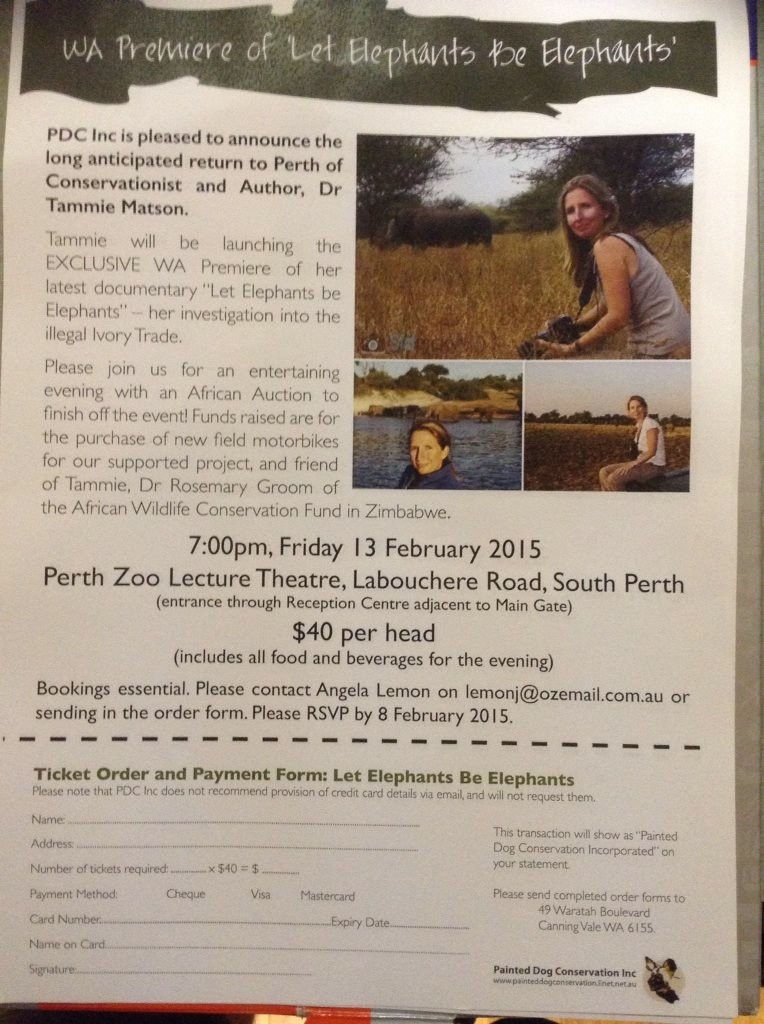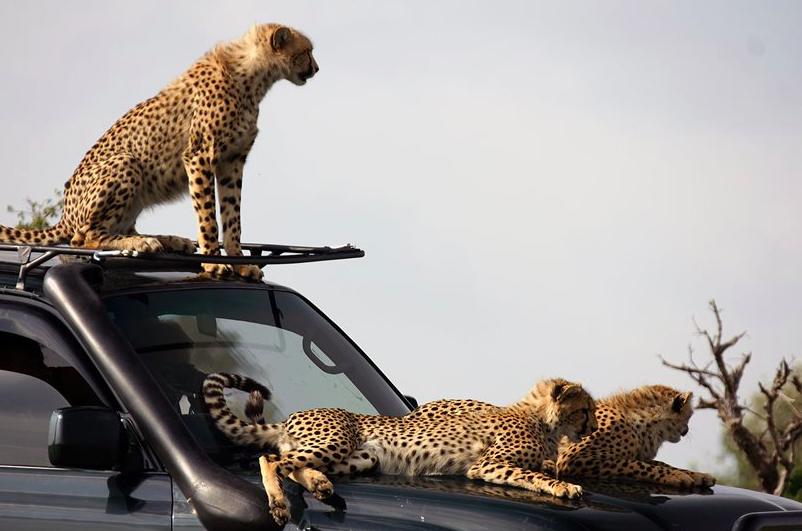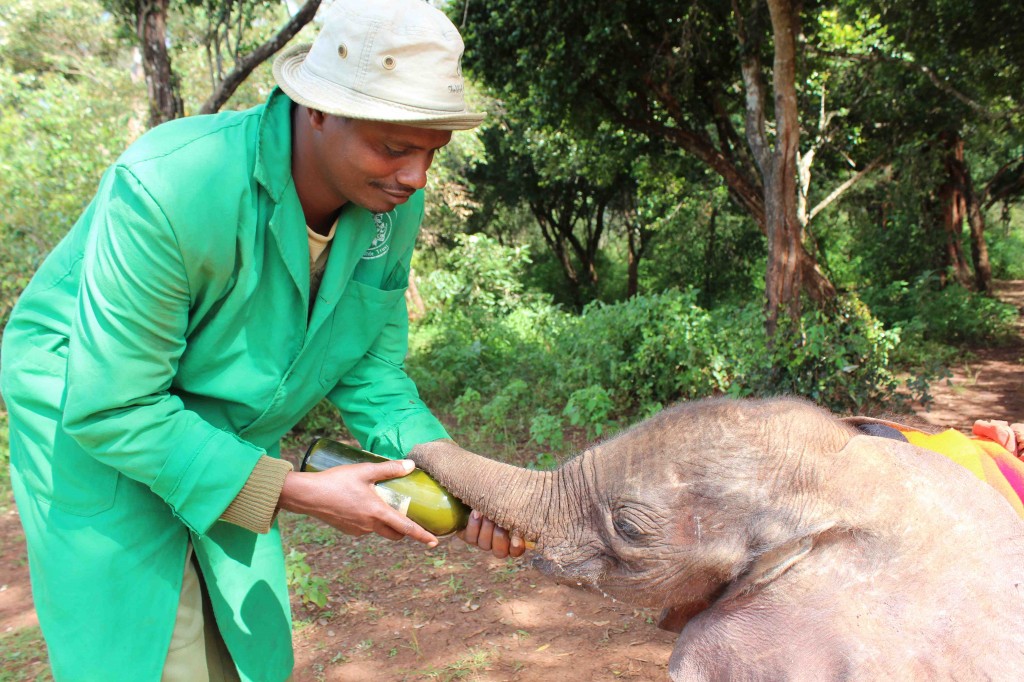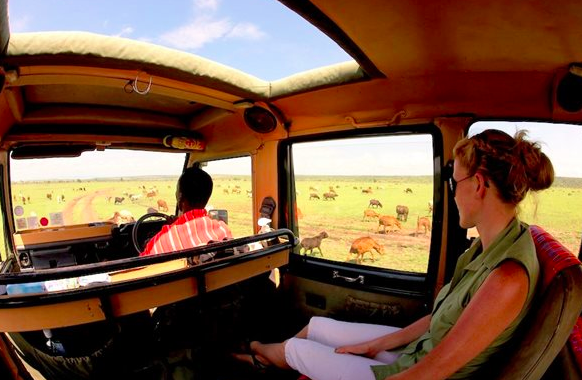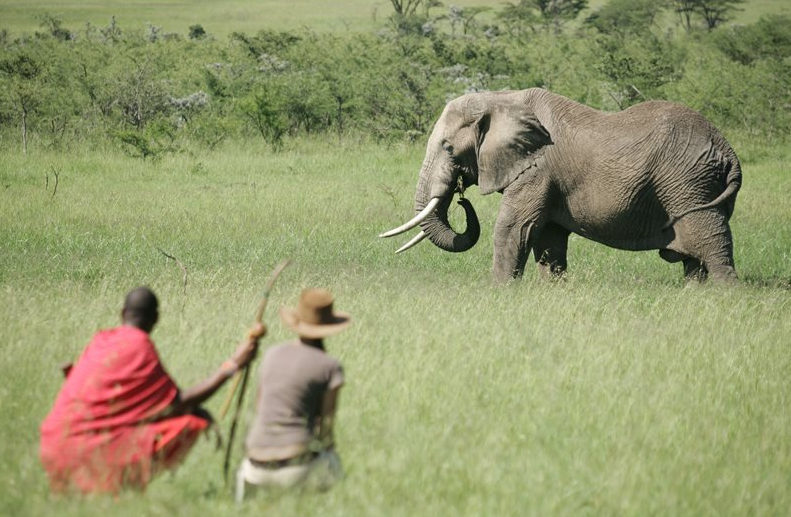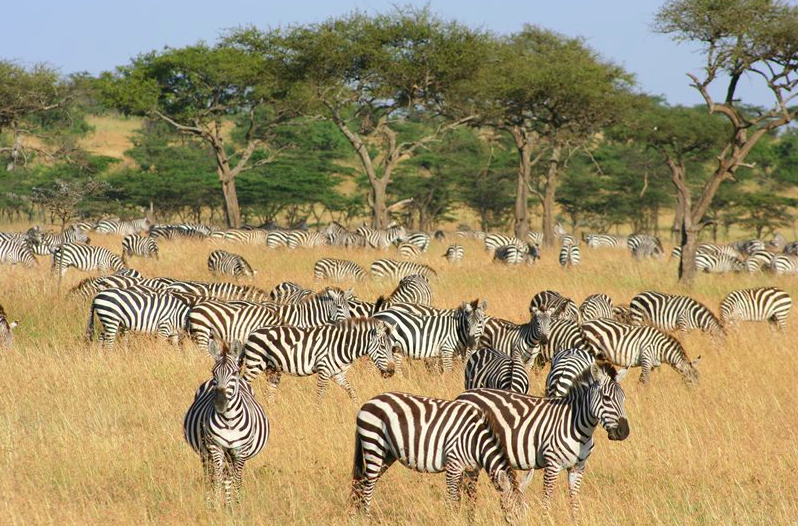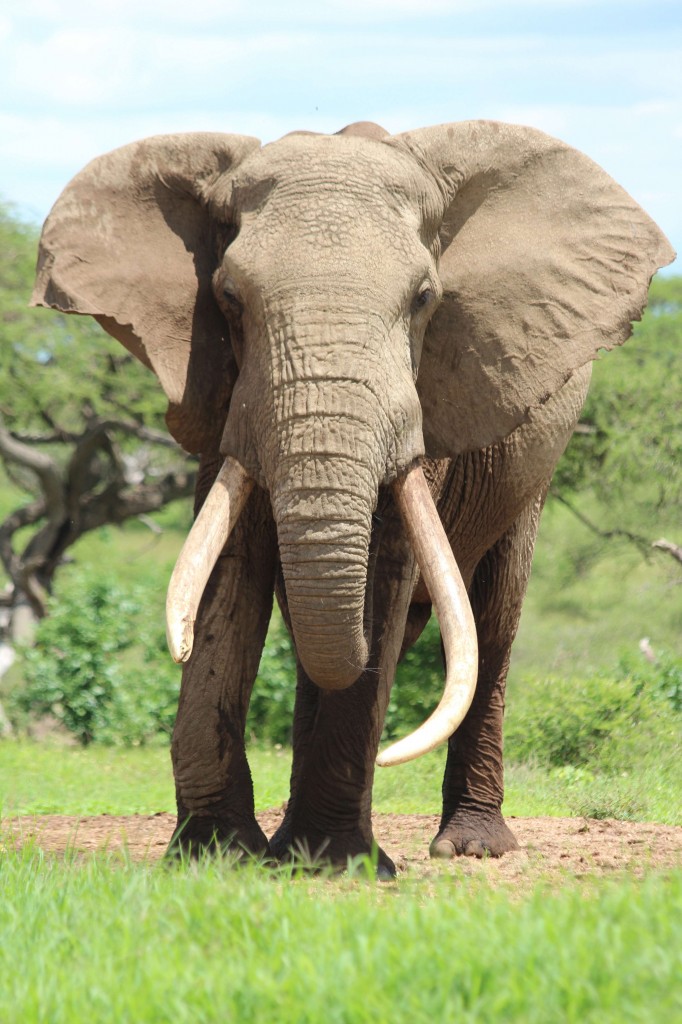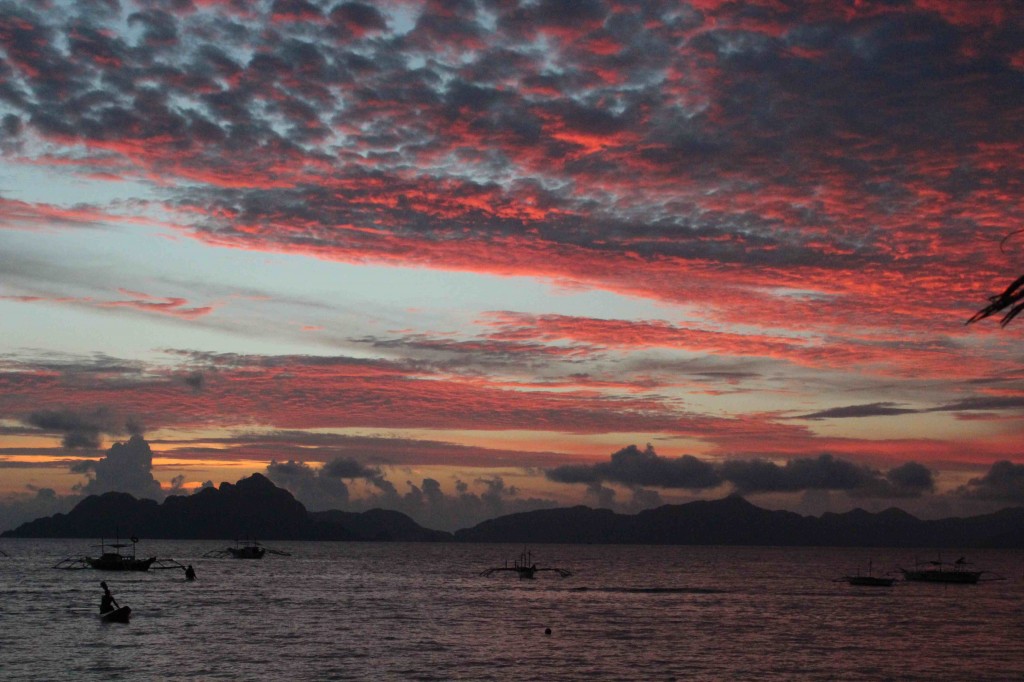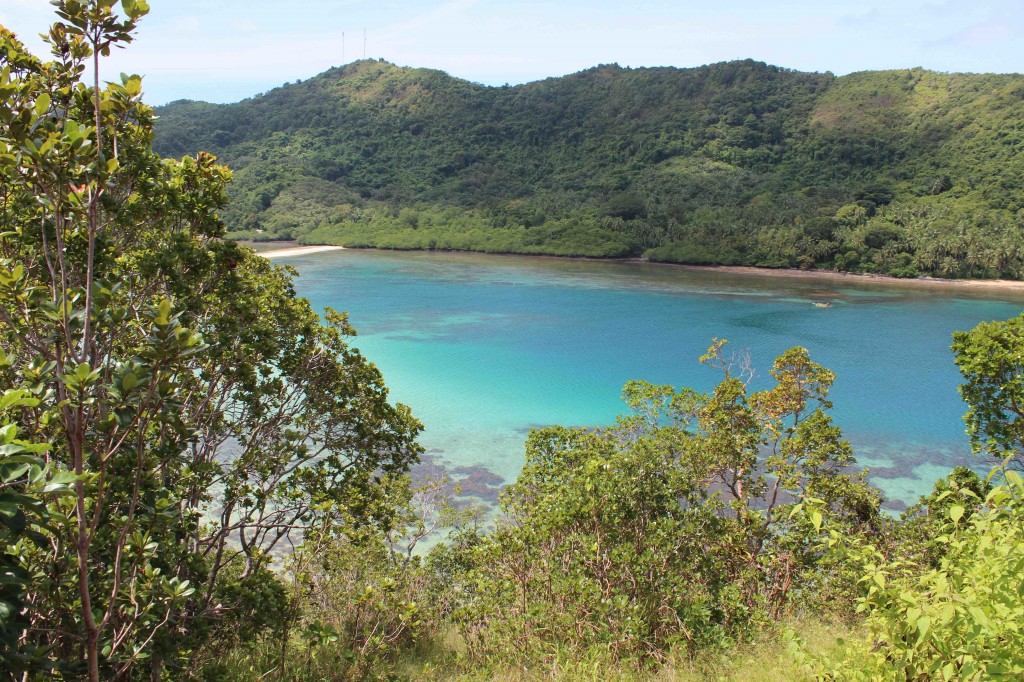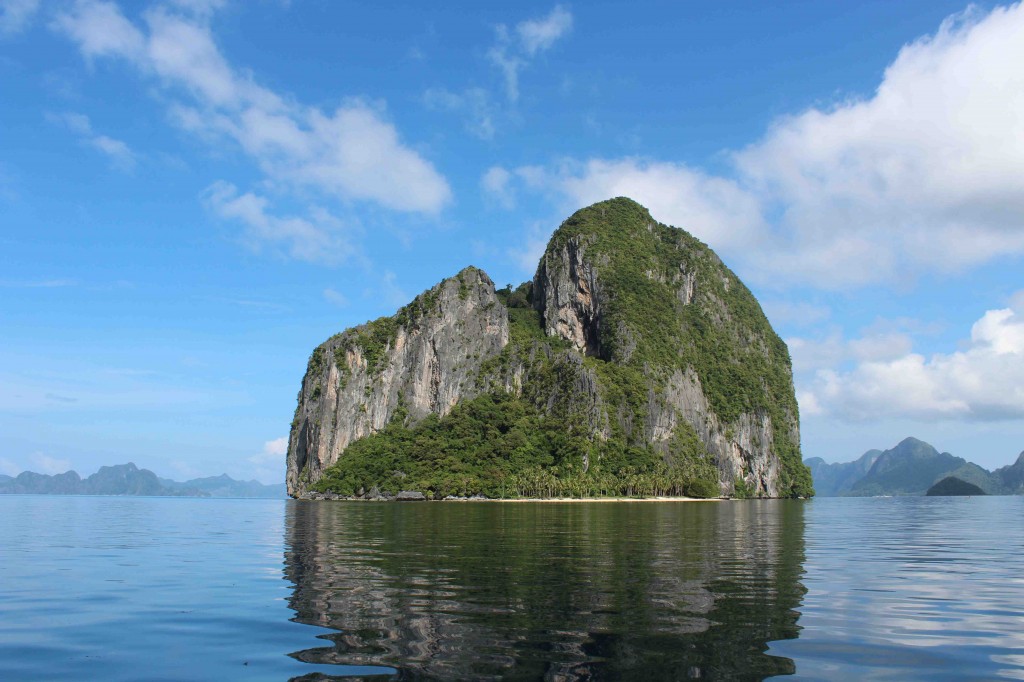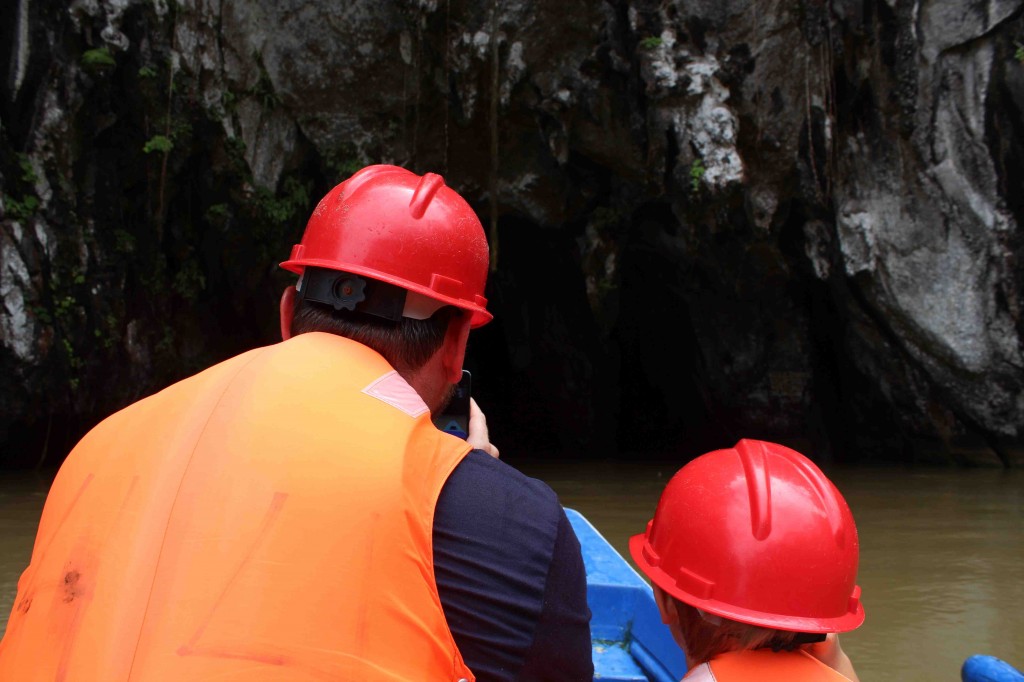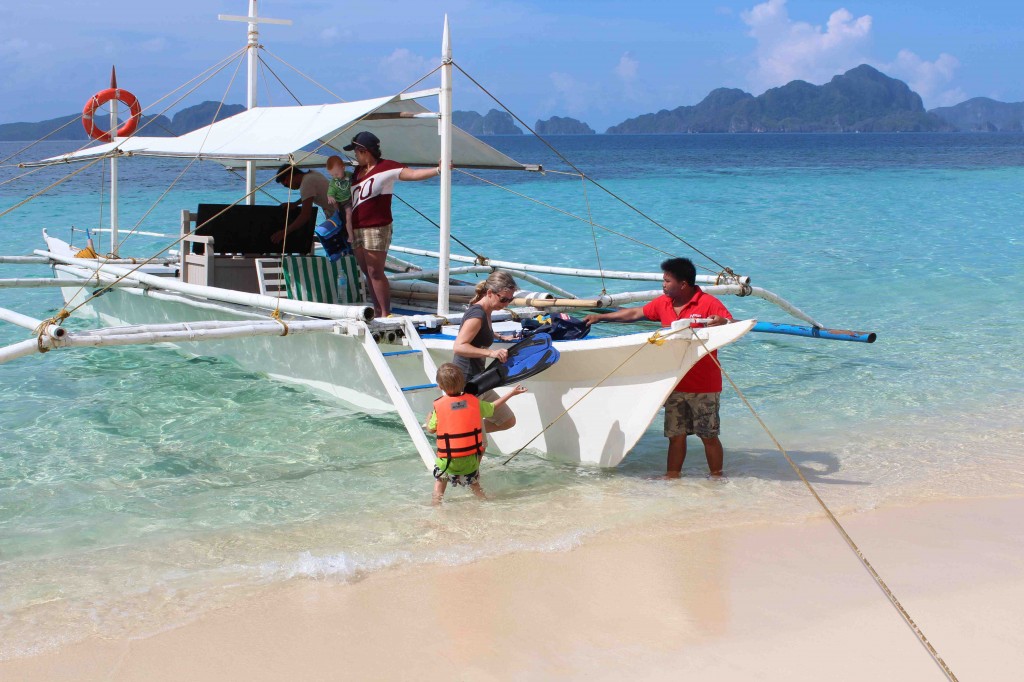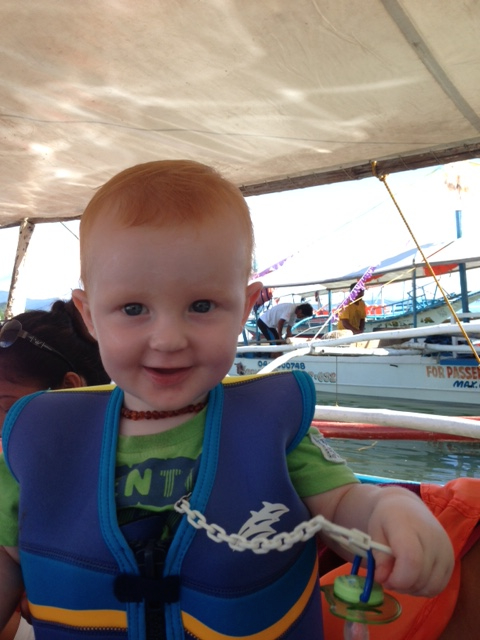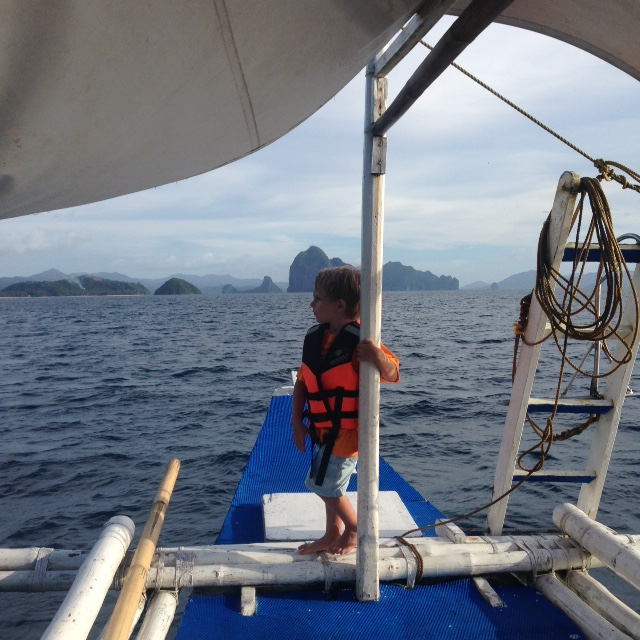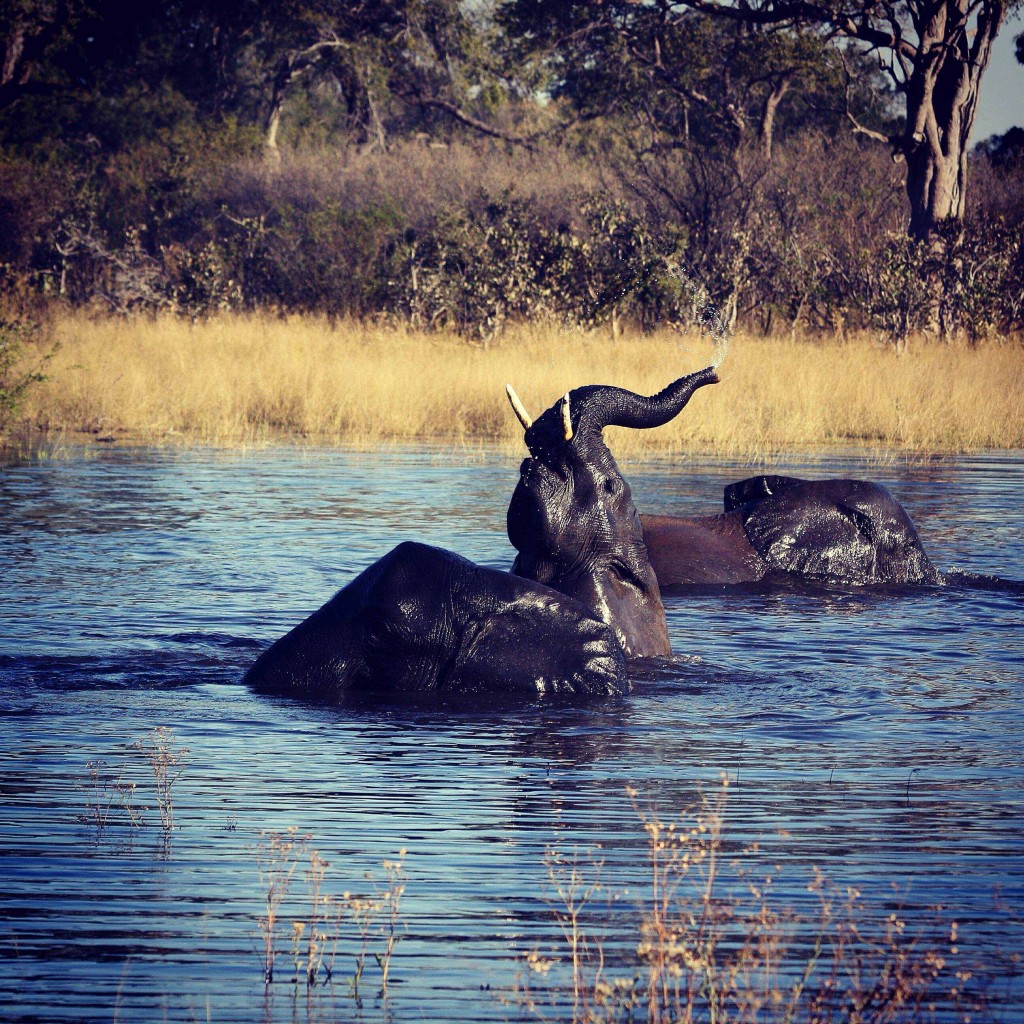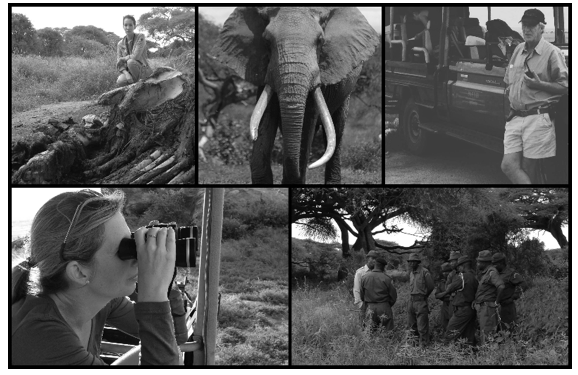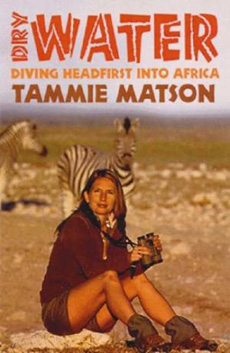Africa night in Perth, WA coming up – 13 Feb
WA friends, I’m very excited to announce I’ll be joining fellow African wildlife lovers in Perth for the dedicated folks at the Painted Dog Conservation group on Friday 13th February at the Perth Zoo Lecture Theatre. Tickets are $40/person and includes food and beverage. Bookings are essential through Angela at lemonj@ozemail.com.au . I’ll be talking about the elephant situation, the illegal ivory trade and the Let Elephants Be Elephants project, and showing the documentary of the same name. There will be a healthy dose of Africa-itis in the room!
It’s for a good cause of course! The night includes an auction to raise funds for African wild dog research and conservation work being done by the African Wildlife Conservation Fund in the Save Valley Conservancy, Zimbabwe, a place very close to my heart. So come along if you’re in the area!
I just adore wild dogs and they’re among the most endangered predators on the planet, with only about 5000 in the wild. Check out my video footage taken of the cutest wild dog pups you’re ever likely to see from Zimbabwe (rapidly approaching 5000 youtube hits!).
Only 4 spots left for Kenya in July!
This is THE year to go to Kenya, with prices being so much lower than usual due to the masses being scared off due to ebola in west Africa (a long, long way from Kenya – you’re closer to the ebola countries in London than you are in Nairobi, just to put it in perspective). I only have 3-4 spots left on this amazing journey that makes a difference in the world famous Maasai Mara during the time of the Great Wildebeest Migration, led personally by me. Not to mention a private viewing at Daphne Sheldick’s elephant and rhino orphanage in Nairobi on the first day – utterly unforgettable!
If you’re ever going to do it, this is a great way to go, travelling with a small group of 10, plus you’ve got me there for everything you every wanted to know from a zoologist’s perspective, making friends for life with like-minded folks. Ask anyone who went on my last safari in Botswana – there’s a special kind of magic on a Matson & Ridley Safari because of the kind of people who join me…. Grab your spot now!
For full details on my Kenyan safari click here and contact me for an itinerary. I’m finalising numbers now so don’t wait!
Calling all Africaphiles in SE Queensland!
Being based in my old haunt, South East Queensland, for the next month or so, it seems too good an opportunity to miss to get together with fellow Africa-lovers in this part of the world. Annie from Annie’s Books on Perigian, a huge Africaphile herself, is hosting a night of Africa with yours truly on Wednesday 21st January at the Perigian Beach Community House at the Sunshine Coast (near Noosa).
I’ll be showing the Let Elephants Be Elephants documentary, which aired across Asia on National Geographic channel last year, but hasn’t yet been shown in Australia, and of course, talking about Africa, elephants and all things safari-esque! Only $15/person and includes wine and cheese – what a deal!
For further details check out Annie’s Books on Perigian website by clicking here.
WEDNESDAY 21st JANUARY 6.00pm
PEREGIAN BEACH COMMUNITY HOUSE, SUNSHINE COAST, QLD
$15 per person (includes wine & cheese_ Bookings 5448 2053 or email Annie at anniesbooks@bigpond.com
Look forward to seeing you there SEQ!
If you have a strong community of Africaphiles around you who’ve all got ‘the Africa bug’ real bad and you’d like me to join you for an evening where you live, drop me a line through my website.
Join me in Kenya’s famous Maasai Mara in July
There’s never been a better time to go to Kenya, as while tourist numbers are down you’ll get better deals to travel there than ever before. Kenya is EBOLA FREE (the ebola zone in west Africa is closer to London than it is to Nairobi) and the terrorist attacks that have been highlighted in the news, including the one at Westgate shopping centre last year, are nowhere near the safari areas. Those in the know are making the most of the great deals while they last!
I’ve managed to secure an amazing deal for a group to join me in the world famous Maasai Mara ecosystem from 15-21 July 2015, so if you’ve ever wanted to see this incredible country at its finest and in style, with your own personal zoologist on hand to ask about everything from the antelopes to the dung beetles, now’s your chance! If it’s half as good as my last group safari to Botswana then those who join me on this safari are in for a real treat.
As always on the tours I lead, I’ve picked the camps to ensure complete comfort in the bush, but the real advantage of these camps is the exclusivity. I always try and pick camps that operate in partnership with local indigenous communities, and this safari is no different. Plus, because the camps are in private game reserves, you get the huge numbers of wildlife without the huge numbers of people – and that makes a big difference when you’re on your safari of a lifetime – trust me!
So this safari kicks off in Nairobi, the capital of Kenya, with a night at the Ol Sereni Hotel, a hotel in a game park in the city (yes really!). We have a private viewing with the adorable orphaned baby elephants and their wonderful keepers at the David Sheldrick Wildlife Trust that afternoon, organised just for us, an experience you’ll never forget.
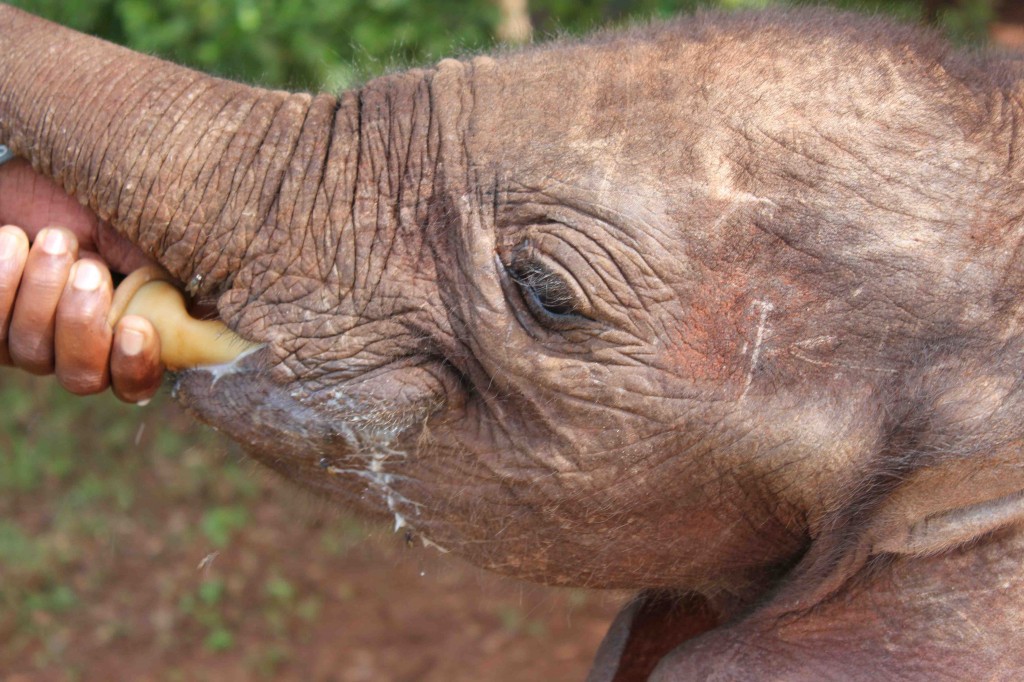
Baby elephant being fed by a keeper at the David Sheldrick Wildlife Trust, Nairobi (credit: Tammie Matson)
Then the next morning, it’s off to the Maasai Mara for the wildlife experience of a lifetime! I’ve intentionally picked July to go as that’s the start of the Great Wildebeest Migration. With nature of course there’s no guarantees, but July-October is generally the time of year when your chances are best of seeing the wildebeest migration in this part of Africa. The area is also famous for its big cats and has an abundance of plains species, including giraffes and zebras.
Our first camp for two nights is Naibosho Camp, a community partnership with the local Maasai community. It’s part of the 50,000 acre Mara Naibosho Conservancy and adjoins the Maasai Mara Game Reserve, which we will visit during our time there. Naibosho literally means ‘harmony’ and every aspect combines comfort with considerations for the environment, providing a luxury tented camp that touches the earth lightly and benefits the locals. Here you can expect to see everything you’d see in the Maasai Mara Game Reserve itself, but without the crowds.
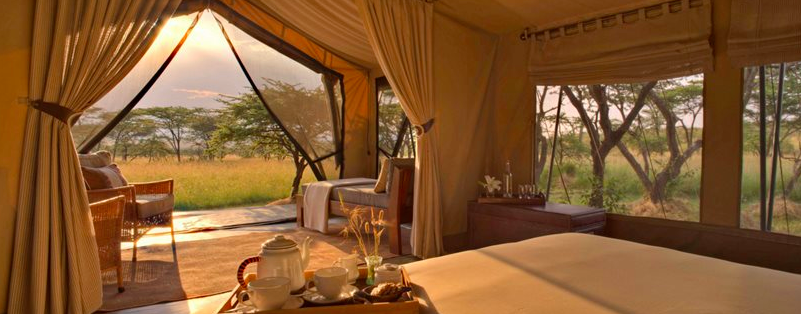
Tent at Naibosho Camp
Then we have 3 nights in two private houses, the Mara Bush Houses, in a different part of the Maasai Mara ecosystem. Each room has its own private ensuite and of course, the whole experience is tailored for you, with private vehicle and guides of the highest standard. This area is run in partnership with a local Maasai family, the Looseyia family.
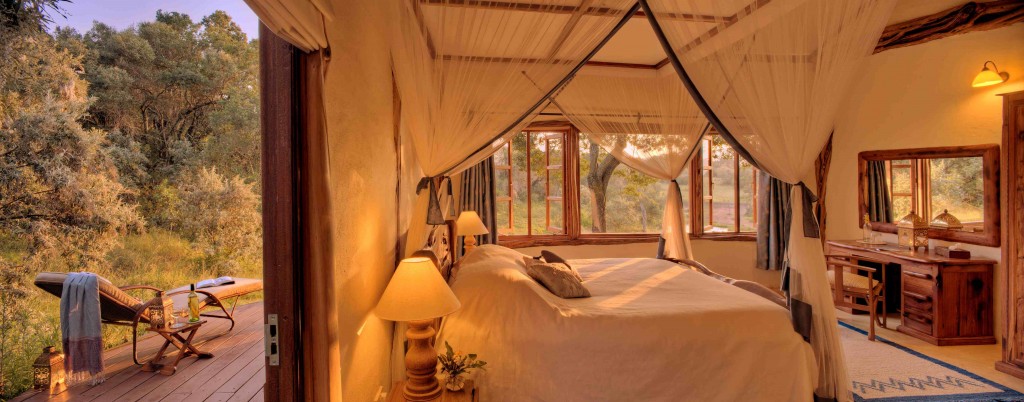
Mara Bush House room & verandah (Credit: Asilia)
If you’d like to join me on this exclusive Maasai Mara safari for an unforgettable week, plus our own private viewing at Daphne Sheldrick’s famous elephant orphanage, let me know by clicking here. Kids over the age of 12 are more than welcome as long as they are accompanied by a guardian/parent. Once you get in touch I’ll send you an itinerary and costing by email. Numbers are strictly limited (10-12) and places won’t last, so grab your spot now!
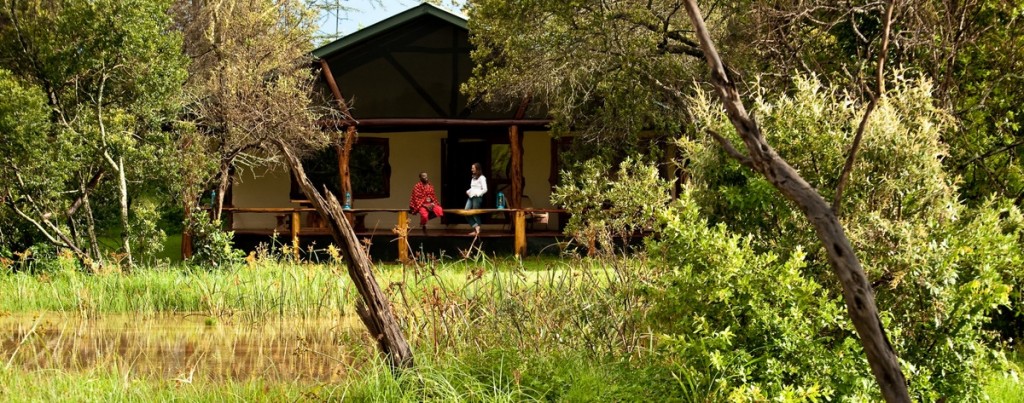
One of the Mara Bush Houses from the outside (credit: Asilia)
The Awesome Okavango
There are few places in the world where you can watch wild animals at very close range without them being affected by your presence. Botswana’s Okavango Delta is one of these rare places and if you’ve never seen it, believe me, it’s worth the visit.
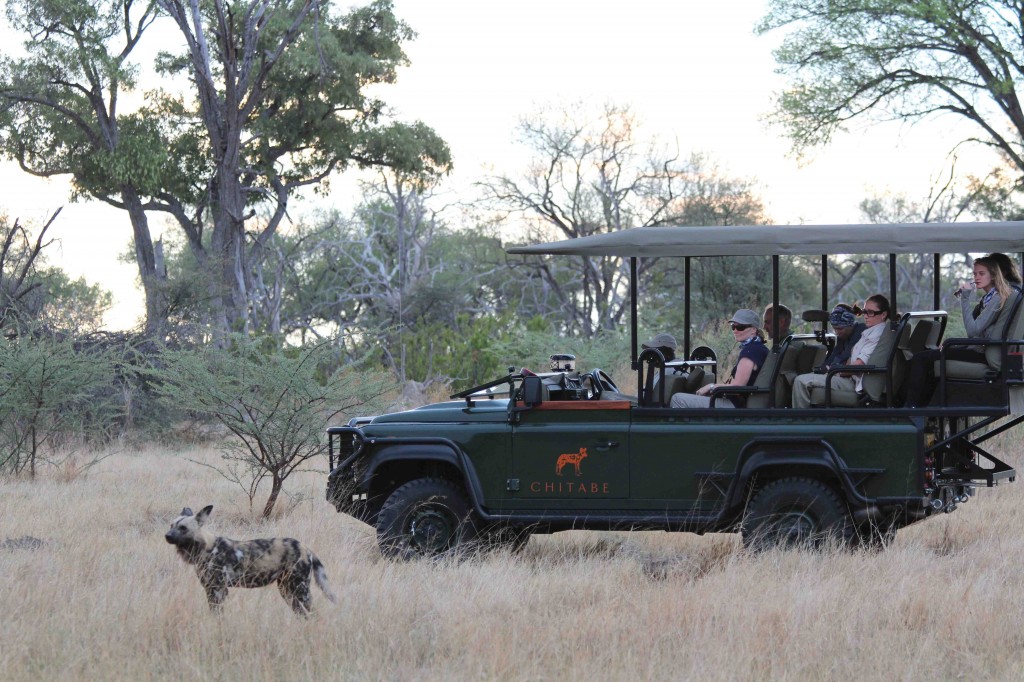
Up close and personal with an African wild dog at Chitabe – the most amazing area I’ve been to for experiences with predators who basically ignore vehicles
Ebola’s impact on elephants
Don’t worry, elephants don’t get ebola. Well not as far as I’m aware! But that doesn’t mean they won’t be severely affected by the disease in other ways. Indeed, elephant populations will very likely be impacted indirectly and I think we should be very concerned about what’s happening at the moment.
Next week, conservationists from all around the world will gather in Sydney for the World Parks Congress, including my very own co-founder of Let Elephants Be Elephants, Nadya Hutagalung, who will be speaking at the world leaders dialogues with the head of CITES, Director General of WWF, Ministers of Environment of Australia and South Africa, and several other esteemed influencers. They’ll be discussing the conservation of protected areas around the world. Meanwhile, a crisis is unfolding in Africa and in this case it’s something that the general public has a big role to play in solving.
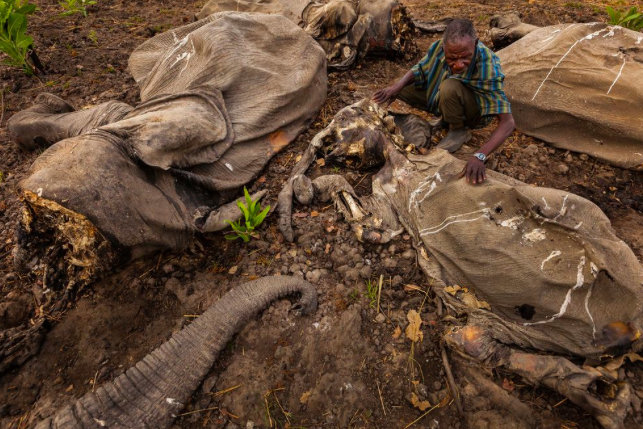
Scenes of devastation like this are becoming increasingly common in Africa, with 2/3 of Central Africa’s elephants having been illegally killed in the last decade (photo credit: National Geographic)
As you all know (because I do talk about it a lot!), African elephant populations are being devastated by the highest levels of poaching seen in decades. The rise in illegal killing is being driven by an increase in demand for ivory from Asia, especially China, and is the result of rising wealth across the region. At current rates of poaching, the African elephant population may have as few as 15 years left.
However a compounding threat is emerging in the form of ebola, due to the negative effect of the disease on tourism across sub-Saharan Africa. Anyone who’s been on safari in Africa can tell you how essential tourism is to the wellbeing of both local communities and wildlife in remote rural areas in Africa because of the far reaching socio-economic benefits it provides. When tourism dollars drop off, local indigenous people turn to alternative income options, like agriculture or even poaching, with devastating impacts on wildlife.
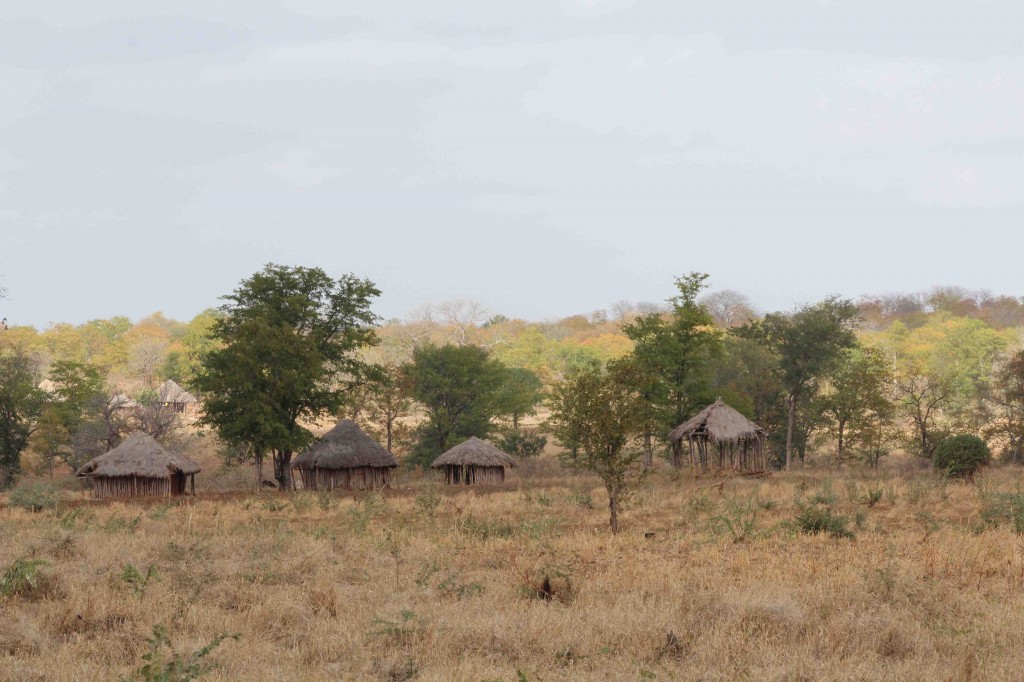
Land that is not providing economic opportunities to local people through tourism will be converted to other land uses, like agriculture, as I’ve seen happen in the Save Valley Conservancy when tourism dropped off in the early 2000s
Ignorance among the general public globally of the location of ebola-affected countries in relation to the rest of Africa is making things worse. So here are the facts. The ebola pandemic is confined to three main countries – Sierra Leone, Guinea and Liberia, all of which are in west Africa, a very long way from the typical safari destinations in places like Botswana, Namibia and Kenya. There are about 8000km between the ebola hotspot of Liberia and the safari areas in Botswana, and over 7000km between Liberia and Nairobi, Kenya . There are no direct flights to either region from Liberia – you have to connect through other countries. Liberia is closer to London, Paris and Rome than it is to these safari destinations in Africa.
Nonetheless, safari operators across sub-Saharan Africa are noticing a significant downturn in future bookings, as well as an increase in cancellations. There have been more cases of ebola in America than there have in sub-Saharan Africa in this outbreak, so you’d be more at risk there than on safari in South Africa. But the perception that safari areas could have ebola, even though they don’t and are miles away, is damaging tourism, which ultimately will make wildlife conservation efforts much harder. I think we’ll see the poaching of elephants and rhinos escalate as a result of the downturn in tourism in Africa if people don’t realise they are not in danger of contracting the disease by going on safari. And I’m not the only one who thinks so; according to this article in The Daily Beast, ebola could deal the death blow to many of Africa’s communal conservancies, which are crucial buffer zones around the continent’s limited national parks.
Since 2006, the number of elephants being poached annually has been rising, driven by an increase in the demand for ivory from Asia. A report just released in August in the Proceedings of the National Academy of Sciences reported that more than 100,000 elephants were illegally killed between 2010 and 2012. There are less than 500,000 elephants left in Africa, perhaps as few as 350,000. The current levels of poaching are not sustainable as they exceed the natural population growth rate of elephant populations.
We have very real reason to be alarmed because tourism is so essential to the continued survival of elephants in the wild.
There are very real solutions that are achievable and you can help.
- Never buy ivory. Tell your friends not to buy ivory when on holiday in places like China and Thailand. Visit http://www.letelephantsbeelephants.org and take the pledge not to buy ivory, then share the videos and facts with your friends on social media.
- Go on an Africa safari that supports local people and allows them to make a living for them and their families through tourism and conservation. If you’ve already booked a safari, don’t cancel it. You’re not at risk in the main safari countries as they do not have ebola and are taking serious measures to ensure it does not reach their shores.
I’ll be heading over to Botswana with a group of Australian and Singaporean travellers in a couple of weeks, feeling comfortable in the knowledge that there hasn’t been a single case of ebola there. It’s been heart breaking to watch the devastation unfolding in west Africa as ebola takes its horrific toll on the human population. Let’s hope that with all the international aid finally going into west Africa that the disease can be brought under control soon.
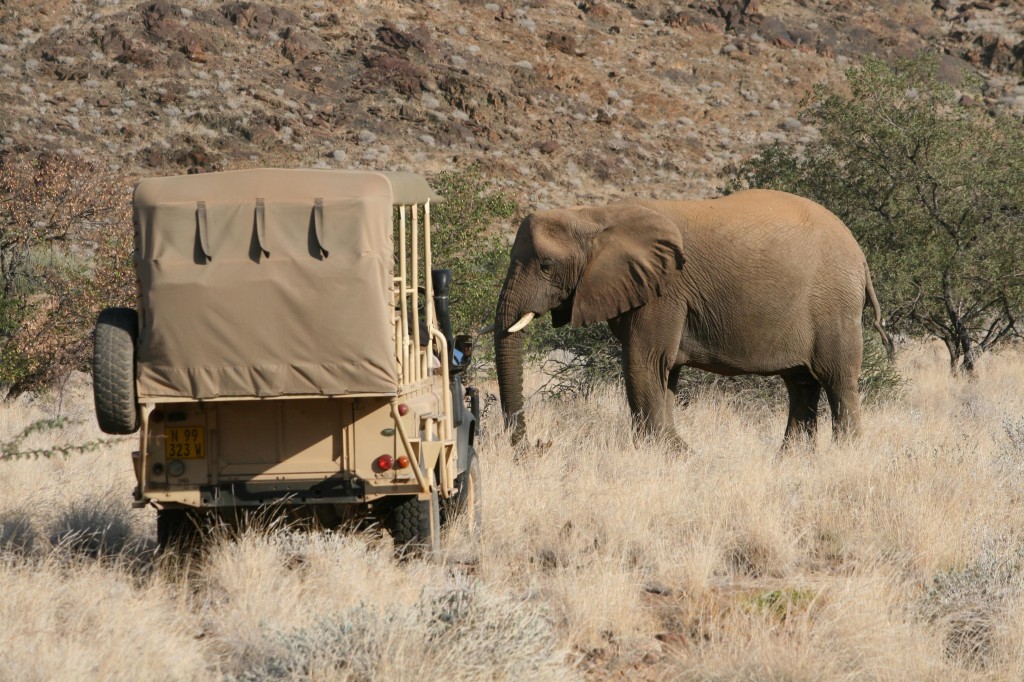
Getting up close to an elephant on safari is one of the most special experiences you’ll have in your life (I took this shot in Namibia)
Adventures in the Philippines
I’ve always wanted to check out the Philippines, and living in Asia for the last couple of years finally afforded us the opportunity to do a bit of exploring. Ever heard of Palawan? It’s a series of islands to the west of the main Philippines islands, quite off the beaten track and home of the famous Underground River, a UNESCO World Heritage site that is considered to be the world’s longest underground river. Conde Naste magazine recently awarded Palawan the best island award as part of their 2014 Travel Awards – and here’s why.
Having packed up our house and put all our possessions in storage in Singapore, Andy, the boys and I headed for Manila for three days of Let Elephants Be Elephants events with my LEBE co-founder, Nadya Hutagalung, organised by our fantastic Philippines team, Ian Angelo King and Joey Mead. More on the Philippines launch of LEBE in a future blog, but for now let me take you to Palawan, Asia’s ultimate, undiscovered adventure and ecotourism destination.
Travelling with two kids under the age of 5 is sometimes a challenge, but the thing about the Philippines is that the locals adore kids – and that really helps. The warmth and friendliness of the people we met, from complete strangers to the lovely people we stayed with, was one of the most memorable parts of the stay. Okay so there were extremes – I had my wallet stolen in Manila, while holding the hands of two small kids (pick-pocketed right out of my bag), and we did have a bad experience with the owner of one place we stayed, but the generosity of others just astounded us. Palawan feels a bit like Africa in that way; you never know what’s going to happen, but when you go with the flow, magic sometimes happens.
Thanks to the generosity of some folks we met in Manila at the LEBE Land Rover event, we ended up at a little piece of paradise called Lagen Island. A private island looked after by a lovely team of locals, overseen by our impressive guide Bilog, the place had its own luxury two bedroom, two bathroom villa, made largely of bamboo, and even a resident wild Oriental Pied hornbill, we felt like we’d pretty much landed in heaven. We bought fish and lobsters and squid from the local fishermen, cooked on the coals by Bilog and team, and ate like kings in front of a big camp fire right on the beach at night. Surrounded by shallow, warm water and its own sandy beach, it was the perfect place for us and two little boys to rest up.
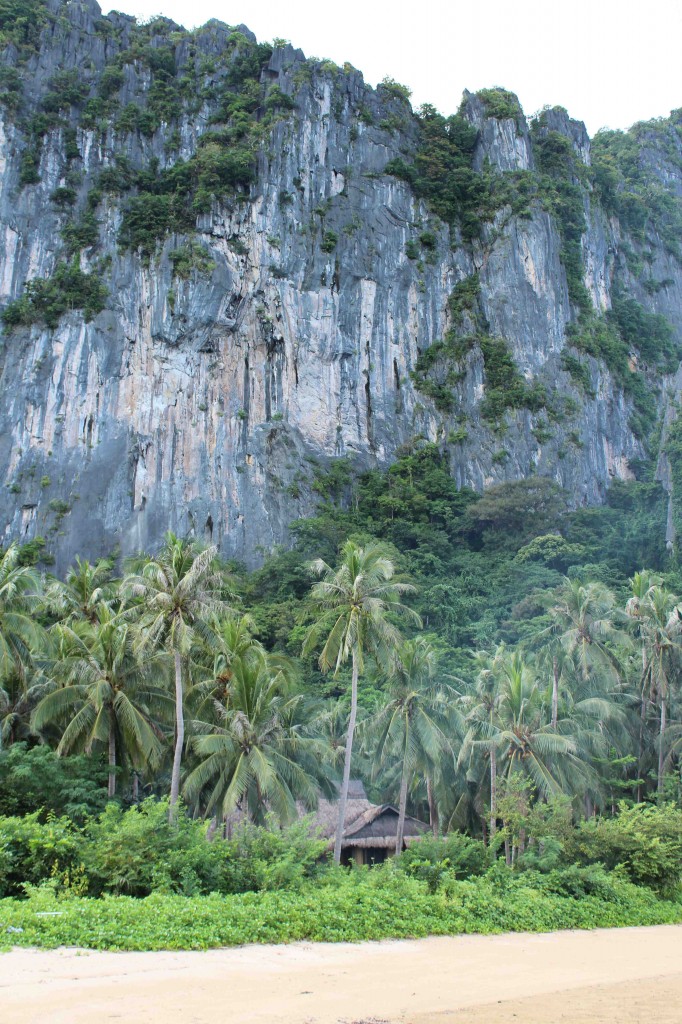
The little piece of paradise where we stayed on Lagen Island – you can book it here
The scenery in the El Nido area is something else. Think islands with gorgeous, soft sand beaches, towering limestone cliffs, fully vegetated forests and swaying palm trees. What struck us about the whole of Palawan was how undeveloped the place was – in a very good way. Most of the island still has intact forests and there’s not a high rise in sight, even in the main town of Puerto Princesa. We hope it stays that way. Electricity on Lagen Island is powered by generator and there’s no refrigeration, which means going by boat into town every few days to buy ice for the cooler boxes, a good excuse to enjoy that breath taking scenery again.
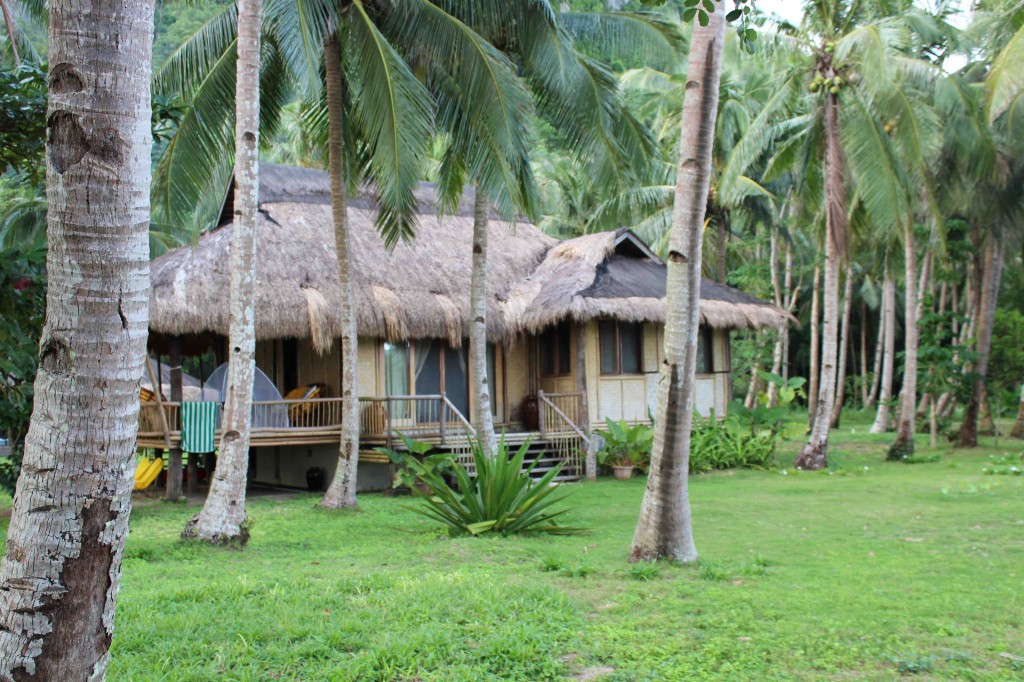
Close up of the villa where we stayed on Lagen Island – book it here
The famed Puerto Princesa Underground River was worth a visit for the impressive stalactites and the sheer adventure of being in the dark on a little boat while bats and swallows fly past your head. Solo, now almost 5, thought it was a grand adventure. Although bear in mind it’s a bit of a mission to get there, two hours on winding roads from Puerto Princesa, and then a boat ride across the ocean to the point where you actually enter the cave.
It’s the sunsets and the peace that will stay in our memories the most. The sense of space, the huge vibrant skies and the warm waters with incredibly tame fish that you can snorkel right up to without them swimming away is really a recipe for a great escape. You do have to keep your wits about you with the kids (life jackets, mosquito repellent, eyes in the back of your head!) but for adventurous families or couples I can’t recommend this place highly enough. A huge thanks to Vivien, Ed & Bilog for taking such good care of us. Lagen Island’s gorgeous private villa can be booked here.
While in Puerto Princesa, which is a 4 hour drive from El Nido, we stayed at the Legend Hotel and met the owners, Antonia and Wyden, who happened to be there at the time and were just the most hospitable people ever. The rooms were of a good standard for the very reasonable price, clean and very big, and more than did the trick for us, plus the breakfast spread was ample for our family. The staff went out of their way to meet all our needs, which really helps when traveling with kids.
Travelling with an almost one year old, Shep, especially one with very red hair and incredibly white skin, was an experience in itself. Everywhere we went, locals described him as a ‘talking doll’, and he really got the celebrity treatment. We would have found it a lot more challenging traveling there if we hadn’t had our wonderful Philippino nanny, Julie with us the whole time. Julie wasn’t just our nanny while there – she was translator, guide and body guard for Shep from all the ladies who wanted to hold him as he literally stopped traffic!
All in all, other than the incredible islands, the warmth of the Philippino people was one of the things we loved the most about travelling there. At the moment, El Nido doesn’t even have an ATM, so it’s really a tourism hotspot waiting to happen. Our hope is that as El Nido opens up to the world, it develops in a way that keeps intact its reefs, forests and islands, because something this magnificent really is worth saving.
Last chance to grab discounted Okavango safari spots!
Imagine that you’re sitting back with a nice sundowner, with a bowl of nibbles within reach, looking out over the magnificent wetlands of the Okavango Delta at sunset, knowing that a sumptuous dinner and a luxury room awaits you on your return to camp…. Well if you’ve ever wanted to do it, here’s your chance to do it with me in a couple of months time! It’s just over two months til I head to the Okavango Delta, Botswana with a group of Aussies and Singaporeans, and I’m starting to get excited. Most people travel to the Okavango in the peak dry season (June-October) but what many don’t know is that the green season is equally awesome. Crashing thunderstorms like only Africa can provide, baby animals being born and green grass rather than brown, are just a few of the season’s draw cards. Of course, it’s also significantly less expensive to travel then.
New webisode released by Let Elephants Be Elephants
Ever wondered what it’s like to be a game ranger in Africa? Find out by watching our second webisode from my Kenyan expedition with Asian TV star Nadya Hutagalung on the Let Elephants Be Elephants youtube channel by clicking here or watching below. This video is a unique behind the scenes look into the real world that elephants live in today, and the dangers that rangers in Kenya from the Big Life Foundation face on a daily basis. Take a journey with us into the magnificent East African plains to see what is really happening on the ground. Please share it on your social networks and help us spread the word!
If you missed our first webisode, focused on the amazing work of the David Sheldrick Wildlife Trust run by Dame Daphne Sheldrick, you can still watch it below. We’ve loved having your feedback on the super-cute baby elephants in this video and we hope you’ll continue to share it with your friends.
Remember that you can make a difference to stop the illegal ivory trade in Asia simply by spreading the word that it’s not cool to buy ivory. That’s what the Let Elephants Be Elephants campaign is all about. Just click here to take the pledge to say no to ivory, then share the link with your friends.
Over 7500 people have taken the pledge so far, and we want at least twice that number to make the commitment! And remember that if you enter the website, there are lots of fascinating videos and facts about elephants from some of the biggest names in elephant conservation ready for you to share on Facebook with all your friends. So what’s stopping you? Take the pledge today!
With thanks,
Tammie
Happy World Elephant Day!
Today, on World Elephant Day, 12th August, the Let Elephants Be Elephants team is releasing our first webisode from Nadya and my Kenyan expedition. It’s only 7 minutes long and you can watch it right now below!
If you love baby elephants, you’ll love this short behind-the-scenes video from Africa. Please help us by spreading it as far and wide in your social networks as you can. Stay tuned as there are more to come soon! And don’t forget, if you haven’t done it yet, please take the pledge to say no to ivory at http://www.letelephantsbeelephants.org Thanks for your support!
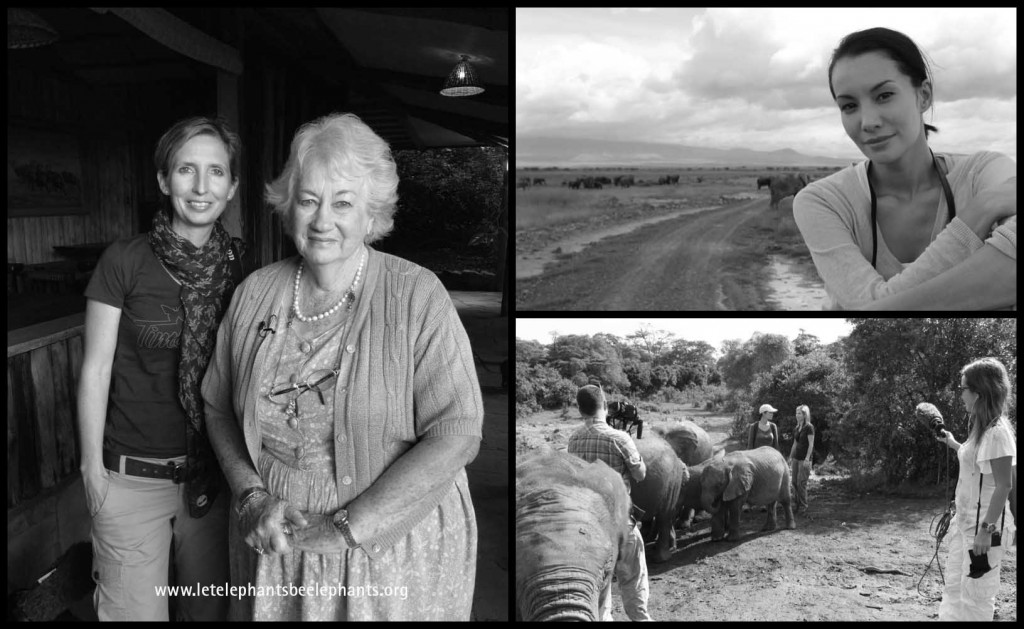
Take the pledge to say no to ivory at http://www.letelephantsbeelephants.org

